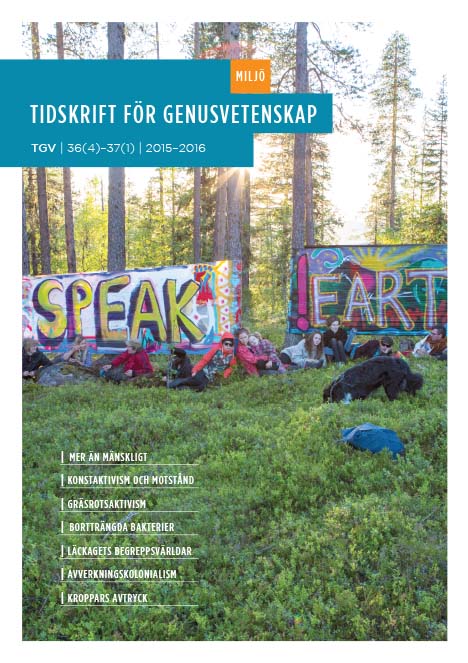Disharmoniska förbindelser. Diskurser om genus och gräsrotsaktivism i två skogssamhällen i Indien och Sverige
DOI:
https://doi.org/10.55870/tgv.v37i1.3148Nyckelord:
att vända blicken, Sverige, Indien, relationell analys, kollektiv/individuell subjektivitetAbstract
The importance of gender-equality and of women’s work in relation to the environment are considered to be crucial questions for development in ‘third world’ rural societies. ‘Development’ and a certain standard of welfare make these issues appear to be less urgent in a wealthier country like Sweden. In this paper I trace some of the contradictions and connections in the ways in which gender equality is conceptualised in women’s struggles vis á vis environmental issues in rural areas in Sweden and India. The paper throws light on two important insights: first, that in Sweden where gender equality has been actively pursued as the bedrock of modern societal organizing, the space to organize as women in relation to environmental issues was hedged around with ambiguities. Second, development discourses about equality and empowerment of oppressed third world women bear not only on how gender equality is conceptualised and practiced in the South but also shape the space for gender equality in the North. Analysing the two cases in relation to each other reveals the travel of ideas and conversations across distances. While ideas about the independent, empowered woman are used to deny agency to women’s collectives in India, gendered discrimination has taken different forms in Sweden, making it more difficult to contest. Understanding how this takes place opens an opportunity for interruption in an order and in a space that appears to have become narrower under the umbrella of development, welfare, and growth. It brings into question the category of development both in a Southern but especially so in a Northern context where the North and especially Sweden is taken as referent for questions of development and gender equality.
Nedladdningar
Downloads
Publicerad
Referera så här
Nummer
Sektion
Licens
Författaren/författarna behåller copyright till verket.





